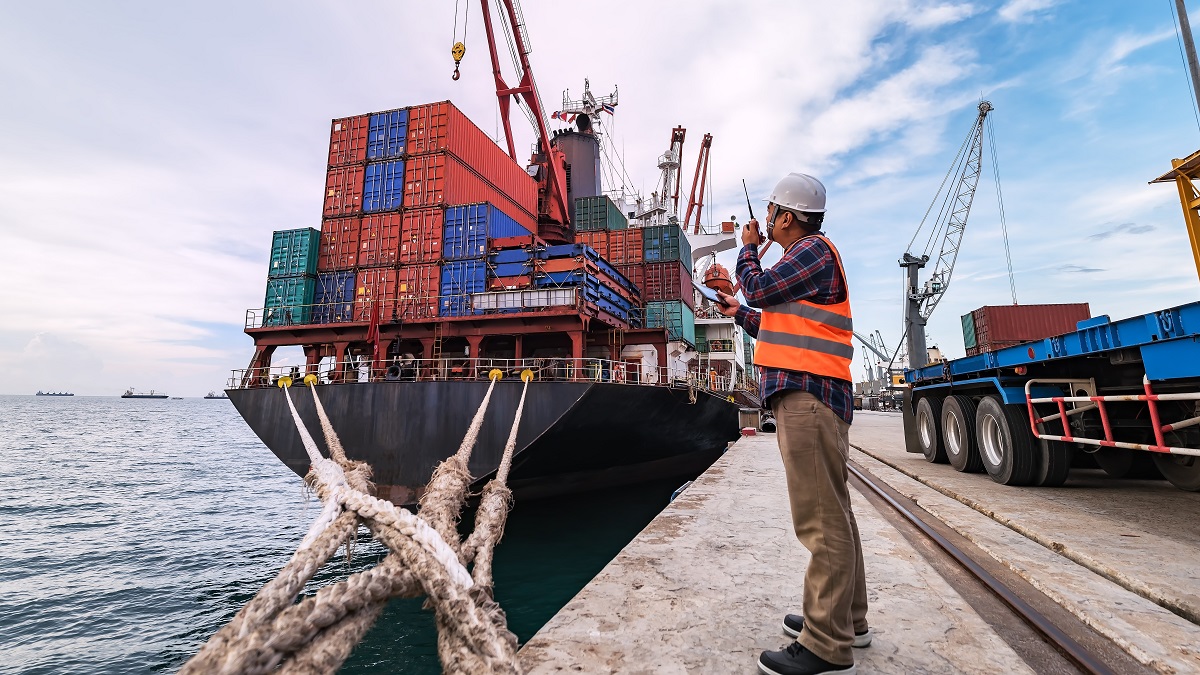UNCTAD launches new tools to help build maritime supply chain resilience by supporting countries to cope with and adapt to disruptions that extend beyond pandemics.

© Shutterstock/tonkid
Frequent disruptions in supply chains have exposed the vulnerability of transport and logistics operations amid unequal capabilities and resources between countries.
Recurrent extreme weather events, the COVID-19 pandemic, the war in Ukraine and other crises illustrate the magnitude of the challenge and its implications for global supply chains and sustainable development.
These challenges underscore the need to enhance resilience, particularly in the most vulnerable economies.
“As disruptions are becoming part of the new normal, resilience and risk management emerge as new mantras for transport, logistics, trade and supply chains,” said Shamika N. Sirimanne, director of UNCTAD’s technology and logistics division.
To help countries cope with the new normal, UNCTAD has launched a new website to promote resilient maritime logistics in the face of disruptions. The website includes a guidebook for ports entitled “Building Capacity to Manage Risks and Enhance Resilience” and a wealth of other resources.
“The web package provides our beneficiaries with support in risk identification, assessment, management tools and approaches, case studies, good practices and a step-by-step resilience-building process for ports and other relevant maritime supply chain actors,” she added.
UNCTAD will update the website as additional resources and tools become available.
Responding to challenges
Sustainability and resilience are important to member states, as highlighted during UNCTAD’s ninth session of the multi-year expert meeting on transport, trade logistics and trade facilitation, held in July 2022.
Participants expressed concern over the ripple effects of disruptive events driving up consumer prices, inflating food and energy bills and reducing transport service reliability.
UNCTAD’s work on trade logistics resilience-building aims to alleviate and mitigate hurdles resulting from disruptive events and their negative effects on the smooth delivery of cross-border trade.
“The COVID-19 pandemic took the entire world and ports by surprise. It woke us up to the reality that building resilience against such shocks should henceforth be a daily routine,” said Michael Luguje, head of Ghana Ports and Harbours.
“We highly commend UNCTAD and its partners and donors for the published impact assessment reports, the organization of regional webinars to disseminate lessons learned, the publication of a guidebook for ports, the dedicated website on resilience, and the training package being developed,” he said.
Safeguarding the integrity of the maritime supply chain, particularly ports, is a sustainable development imperative, as developing countries have become major players in maritime transport and trade.
Ensuring the integrity and effective functioning of maritime transportation is critical for all economies, especially small island developing states and least developed countries.
These vulnerable economies depend heavily on maritime transport networks for their livelihoods and access to the global marketplace.
Moreover, they are already burdened by disproportionately high transport costs and low shipping connectivity, which make their trade uncompetitive, volatile, unpredictable and costly.
The UNCTAD guidebook presents a stepwise approach, tools and methods to build the capacity to enhance port resilience. It underscores the importance of preparedness and emphasizes the role of effective risk management.

The guidebook provides guidance for ports, as a key node of the maritime supply chain handling over 80% of maritime trade by volume.
It will be expanded to encompass collaboration with other actors involved in hinterland connections, as they are crucial in designing responses to disruptions and building resilience.
Next steps: Scaling action
UNCTAD will roll out a new course on ports and maritime supply chain resilience, structured around six modules.
These will help raise awareness about maritime supply chain resilience and build the capacity of ports and other relevant stakeholders to better manage risks and cope with disruptions.
This work was carried out under the overall framework of a broad UN initiative launched in 2020, specifically a project entitled “Transport and trade connectivity in the age of pandemics”.


